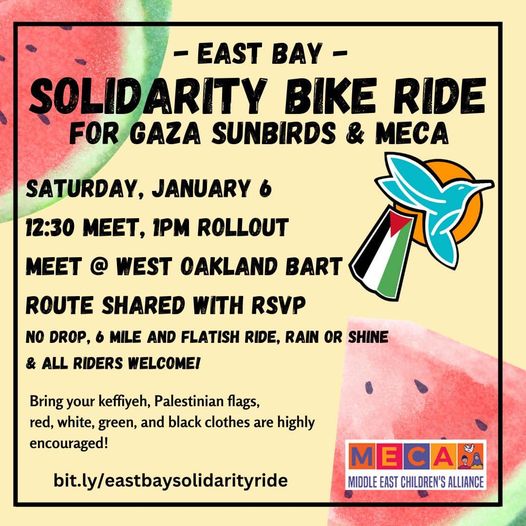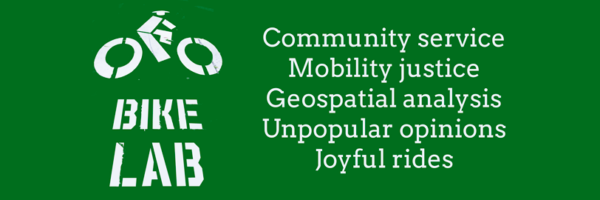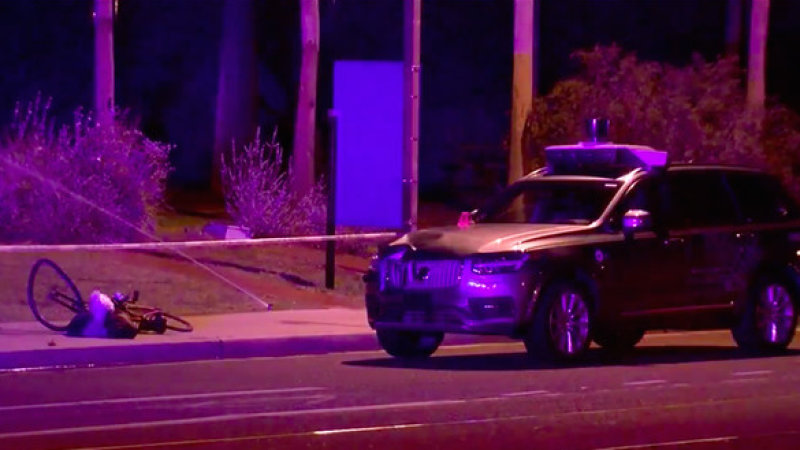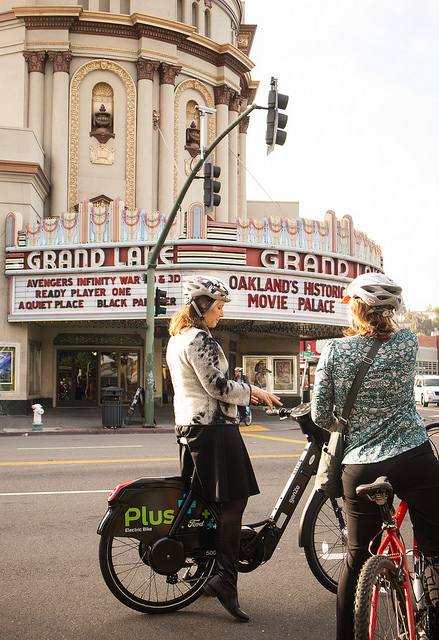The Bike Lab’s premise is that the bicycle can be a tool to understand and fight structural injustice. Bike riders everywhere share the same experience of freedom and mobility, and that shared experience can break down barriers and create new connections across communities. Because of their universality, bikes can provide a way to relate stories of oppression in ways that can be heard and understood by others.
The story of the moment is the genocide occurring in Gaza. This weekend I participated in a global solidarity ride organized by the Gaza Sunbirds, a Palestinian para-cycling team organizing emergency aid efforts in the occupied territories.
Italian documentarian Flavia Cappellini produced a documentary about the Sunbirds back in 2018.
Some of this is what the disability community refers to as inspiration porn, but it’s more than that. The story is not just about a person heroically overcoming the fact of his disability; it’s about the human experience of the oppressive occupation of Gaza by heavily armed Israeli forces. Alaa al-Dali, an aspiring Palestinian pro cyclist at the time, attended a protest rally in Gaza wearing his cycling kit. An Israeli sniper shot him in the leg, and the hospital was forced to amputate it to save his life. After grieving the loss of his limb, he began riding again with his one remaining leg, and eventually formed the Gaza Sunbirds, with the goal of competing in the Paralympics in 2024.
His dreams have been disrupted by the ongoing genocide in Gaza. The road from one end of Gaza to the other is only 36km (22 miles) long, and Gazans are not allowed to leave the territory. Since the Israeli bombing campaign began, Alaa al-Dali and his team cannot escape the bombing, and what little road they have to ride is heavily damaged.
Being unable to ride bikes is far from the most important issue facing Gazans today, but that story can resonate. It can help people here understand the confinement and violence that Palestinians are experiencing. Biking is freedom.
“Whenever I go out for a ride on my bike, I feel like I have everything I need, like I don’t have a care in the world.”
Alaa al-Dali
The Gaza Sunbirds’ struggle entered East Bay bike culture this month when they joined with Middle East Children’s Alliance to sponsor a global solidarity ride in support of Palestine. Local organizers posted the scheduled ride to the East Bay Bike Party group on Facebook.

The EBBP group is a very active community, with over 17,000 members, and it’s common for people to post rides of all kinds there. Most are just for fun, but I’ve also participated in a Black Lives Matter solidarity ride, Cancel Rent On Wheels, and fundraiser rides which were publicized via EBBP. None of those generated the level of controversy that this posting did. Comments from opponents of the ride included:
“Thank you for continuing to makes Jews in your community feel unwelcome and unsafe … I have enjoyed many rides with this organization and will never join again. Way to divide rather than bring people together.”
“No way! Politics not relating to cycling on bike rides is taboo. Add solidarity with Isreal or at least the hostages that have been murdered, raped and tortured.”
“The fact that people are having to protect and advocate for this event shows the division it has already caused. Good job EBBP!”
“Please change flier from ‘all riders welcome’ to ‘all riders except Jews welcome’.”
“The message is clear you hate Jews… enjoy the ride. The bike party is now part of Hamas.”
Comments in support included:
“This is so beautiful! I hope we all can come together and stand for solidarity against hatred and violence.”
“This is awesome, thanks for sharing!”
“Hope we can make it thanks so much for organizing this. Biking is political! And supporting the sunbirds and MECA is NOT anti-semitic.”
The main point I want to make here is that “keeping politics out” reinforces the status quo. Those who are comfortable with the status quo don’t need to take action. Those who want change have to use whatever tool they have. In this case, the ride organizers were reaching out to the biggest community of bike-identified people in probably all of California, using the bicycle as their tool for advocacy.
It so happens that one of the detractors quoted above later used the EBBP group to organize a solidarity ride for the release of Israeli hostages, which I think is totally fine, even though I personally disagree with the framing and didn’t join that ride.
The Gaza Sunbirds ride, I did join, and despite it being a cold and rainy day, over 150 people showed up.
The ride started at West Oakland BART and went to a few sites in Emeryville and Berkeley, stopping to chant slogans calling for the end of genocide. The bikers were fairly energetic, the spectators mostly nonplussed. I got to wondering if a couple of thumbs up and a little bit of fundraising was accomplishing anything. But I think the concept of agonism is important.
Agonism is a term I first learned from Professor Karen Frick’s work on “strange bedfellow coalitions” in planning, but the foundational work came largely from Chantal Mouffe. Mouffe challenges the idea that a shared consensus can ever be reached through purely deliberative processes; she suggests that divergent social identities result in differences between groups which cannot be reconciled through discourse. Agonism is the process of like-minded groups mobilizing their passions towards a democratic policy outcome, with the understanding that there will be other groups with different ideas mobilizing against them.
A key outcome of a ride like this is to identify like-minded individuals; of the 17,000 people in the EBBP group, how many think the attacks in Gaza are important enough to come out for a bike ride in the rain? Quite a few, it turned out. Ideally, having formed a coalition, this group can take actions together towards their desired outcome.
Mouffe notes that a key feature of agonistic pluralism is the acceptance of the ‘other’ as, “somebody with whose ideas we are going to struggle but whose right to defend those ideas we will not put into question.” So here, the bicycle has become a tool for coalition-building on both sides of the issue amongst these bike-identified people. I hope and believe that most people in both coalitions honor the right of the other to exist, despite our differences.
And I hope America stops facilitating a genocide in Gaza. Free Palestine.



